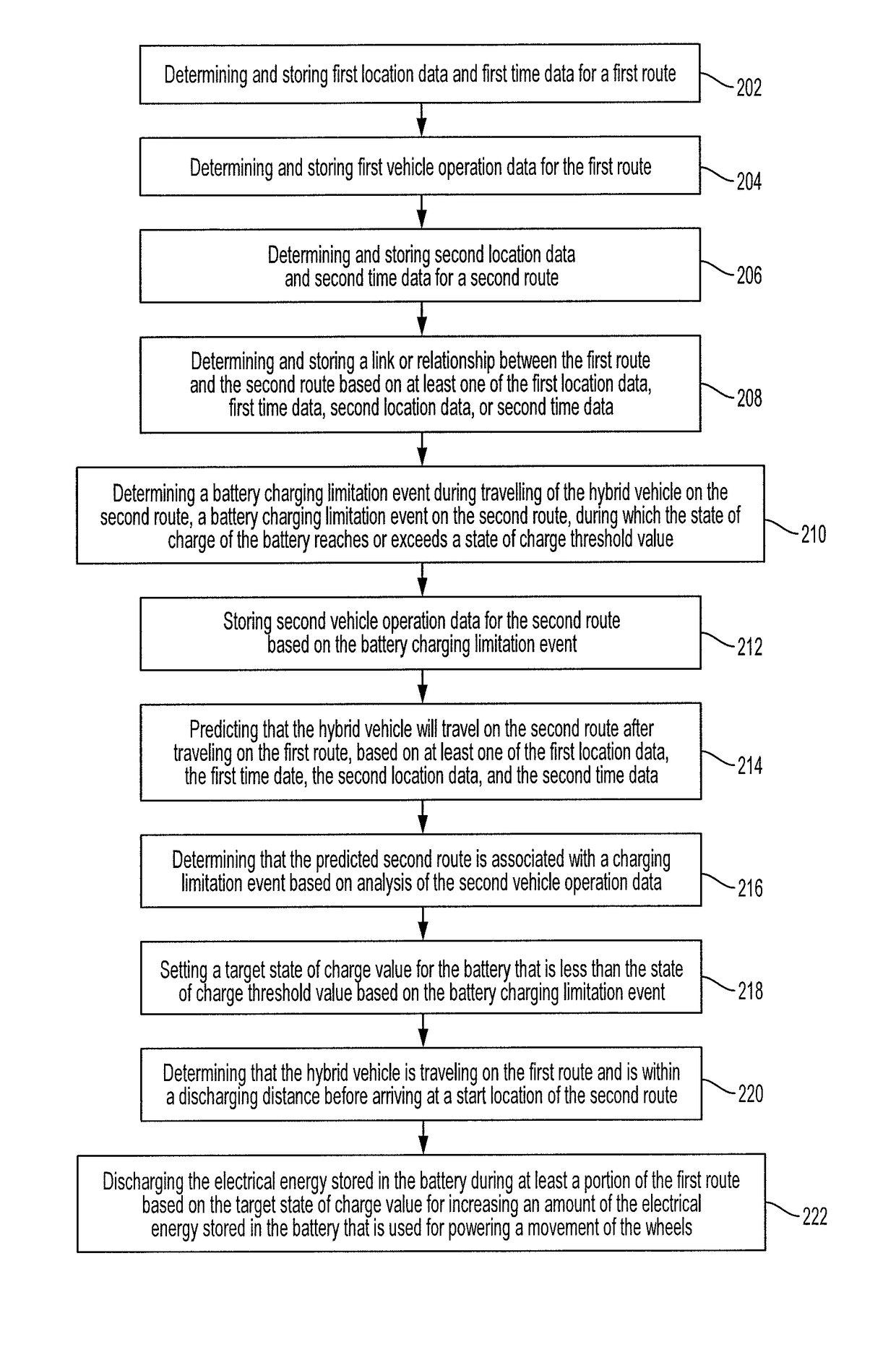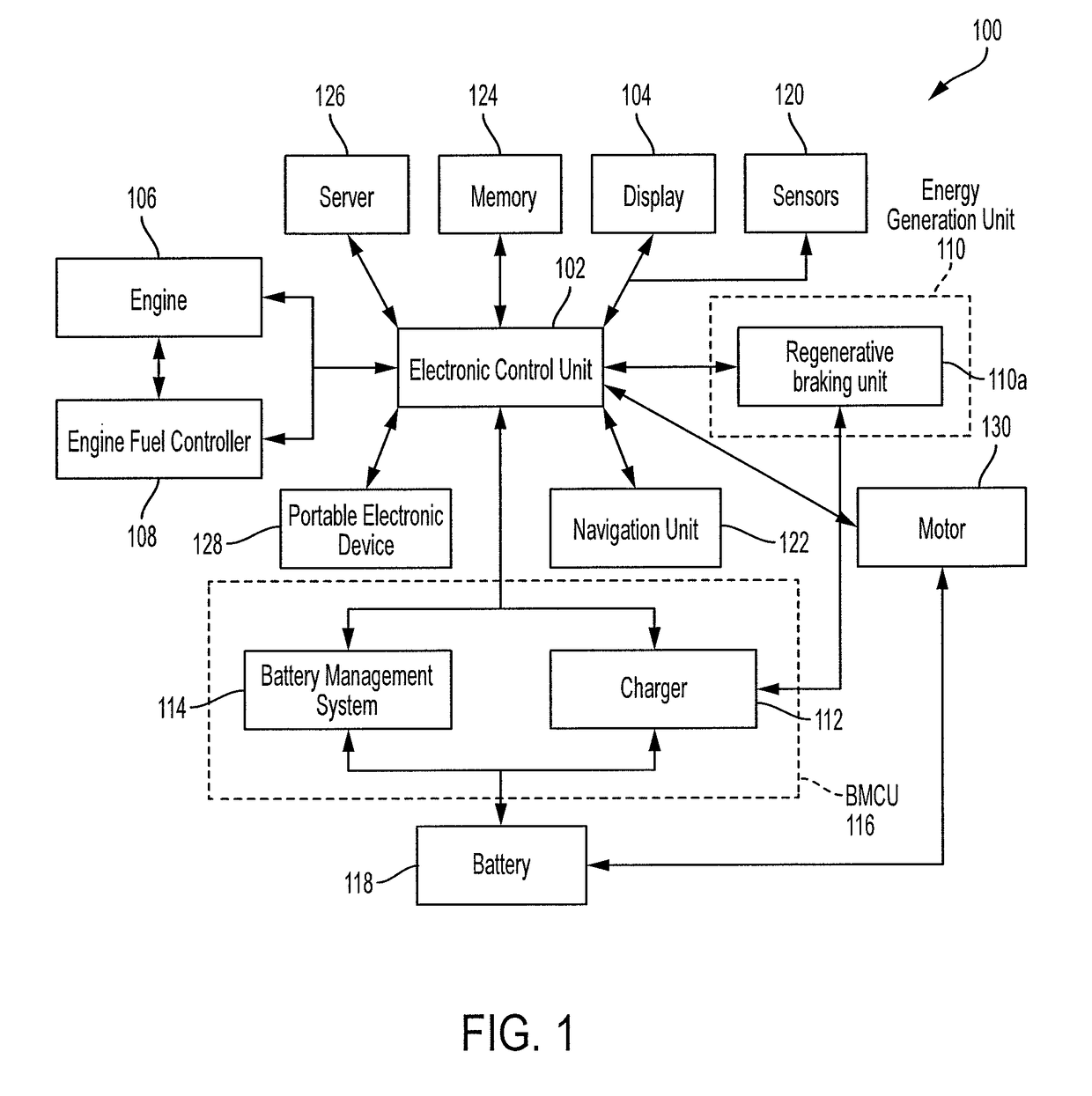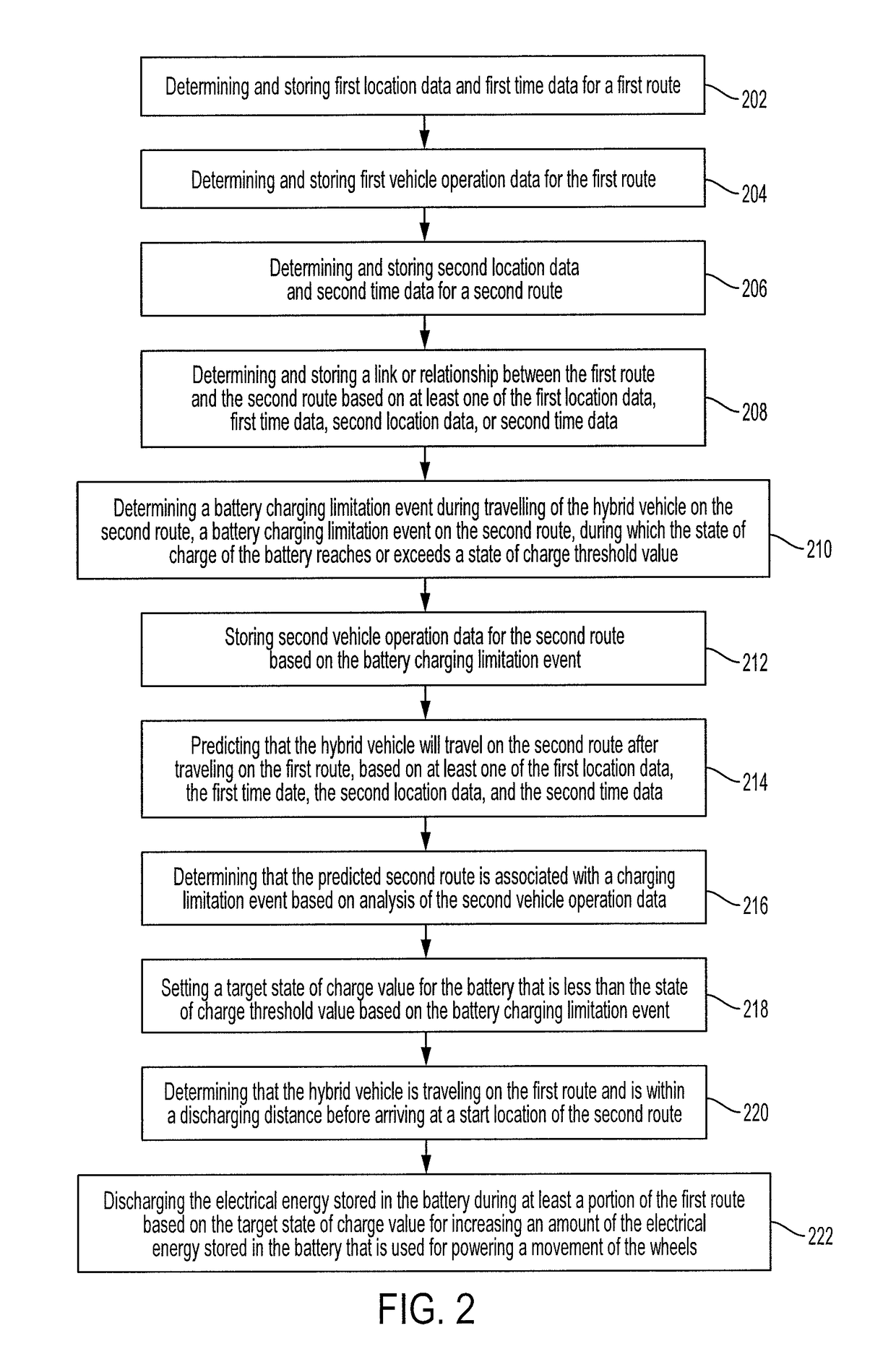Systems and methods for improving energy efficiency of a vehicle based on route prediction
a hybrid vehicle and energy efficiency technology, applied in the direction of battery/fuel cell control arrangement, navigation instruments, instruments, etc., can solve the problems of wasting fuel, wasting energy, and wasting fuel, so as to improve overall energy efficiency and reduce fuel consumption
- Summary
- Abstract
- Description
- Claims
- Application Information
AI Technical Summary
Benefits of technology
Problems solved by technology
Method used
Image
Examples
Embodiment Construction
[0021]The present invention relates to improving energy efficiency of a hybrid vehicle. It is desirable to increase the amount of energy that can be recaptured using an energy generation unit. An important source of regeneration of energy is regenerative braking which can generate a considerable amount of electrical energy that can be stored in a battery of the hybrid vehicle. If the battery has a full state of charge and without a capacity to be charged, then the opportunity to store regenerated braking energy would be missed. The present invention is directed to advantageously learning vehicle operation data during previously driven routes, and utilizing the previously learned vehicle operation data for preventing or at least reducing the duration of an energy inefficient event.
[0022]For example, a charging limitation event that occurs during a given identified route can result in an inability of the battery to be charged. The charging limitation event can be stored in the memory ...
PUM
 Login to View More
Login to View More Abstract
Description
Claims
Application Information
 Login to View More
Login to View More - R&D
- Intellectual Property
- Life Sciences
- Materials
- Tech Scout
- Unparalleled Data Quality
- Higher Quality Content
- 60% Fewer Hallucinations
Browse by: Latest US Patents, China's latest patents, Technical Efficacy Thesaurus, Application Domain, Technology Topic, Popular Technical Reports.
© 2025 PatSnap. All rights reserved.Legal|Privacy policy|Modern Slavery Act Transparency Statement|Sitemap|About US| Contact US: help@patsnap.com



